If your car suddenly shows up on a recall list, it’s not a glitch. It’s the system working the way it’s supposed to. Every year, millions of vehicles in the U.S. are recalled for safety issues-brakes that fail, airbags that explode, fuel lines that leak. These aren’t minor inconveniences. They’re life-or-death fixes. And behind every recall is a chain of legal responsibilities that carmakers must follow-or face heavy penalties.
How a Vehicle Recall Starts
A recall doesn’t usually begin because a carmaker woke up one morning and decided to fix something. It starts with a pattern. Maybe five drivers report the same strange noise from the front axle. Then 20 more. Then a crash report shows the same component failed in all of them. That’s when the National Highway Traffic Safety Administration (NHTSA) steps in.
NHTSA doesn’t need to wait for dozens of crashes. Even a small cluster of similar complaints can trigger an investigation. In 2024, NHTSA opened 187 investigations into potential safety defects. About 60% of those led to official recalls. The agency doesn’t just rely on consumer reports-it also analyzes warranty claims, repair shop data, and even social media trends.
Once NHTSA finds enough evidence, it sends a formal request to the manufacturer: “Explain why this isn’t a defect.” If the company can’t prove it’s safe, they’re legally required to issue a recall. Sometimes, manufacturers skip the fight and announce the recall themselves to avoid bad press. Either way, the law kicks in.
What Manufacturers Must Do
Under U.S. law, once a recall is ordered or voluntarily issued, the manufacturer has six clear obligations:
- Notify owners-within 60 days of the recall announcement, every registered owner must get a letter. It can’t be buried in fine print. The letter must say what’s wrong, what could happen, and what to do next.
- Provide a free repair-the fix must be free. No deductible. No service fee. No “upgraded part for an extra $50.” The law says the remedy must restore the vehicle to its original safety condition.
- Make repairs available nationwide-owners can take their car to any authorized dealer, even if they bought it in a different state. Dealers can’t refuse a recall repair because the car is out of warranty.
- Report progress-manufacturers must submit quarterly reports to NHTSA showing how many vehicles have been repaired and how many are still outstanding. If less than 80% are fixed within a year, NHTSA can force them to intensify outreach.
- Offer alternatives if repair isn’t possible-if the part is no longer made, or the fix isn’t reliable, the manufacturer must offer a replacement vehicle or a full refund.
- Keep records for 10 years-all recall communications, repair logs, and owner responses must be archived. NHTSA can audit them at any time.
Failure to meet any of these obligations can lead to fines up to $21,000 per vehicle, with a maximum penalty of $1.2 billion for a single violation. In 2023, General Motors paid $120 million in penalties for delayed recalls on ignition switches that caused 124 deaths.
What Owners Should Do
You don’t have to wait for a letter. Check for recalls yourself. Go to nhtsa.gov/recalls and enter your 17-digit VIN. That number is on your registration, insurance card, or driver’s side door jamb.
Some recalls are urgent. Others are low-risk. But if it’s a safety recall, don’t delay. A faulty Takata airbag, for example, can shoot metal shards into the cabin. A defective brake hose might fail without warning. These aren’t "maybe fix it later" issues.
Even if you bought the car used, the recall still applies. The manufacturer has to fix it-no matter how many owners it’s had. Dealers sometimes tell used-car buyers, "That recall was for the previous owner." That’s false. The fix is yours, free of charge.
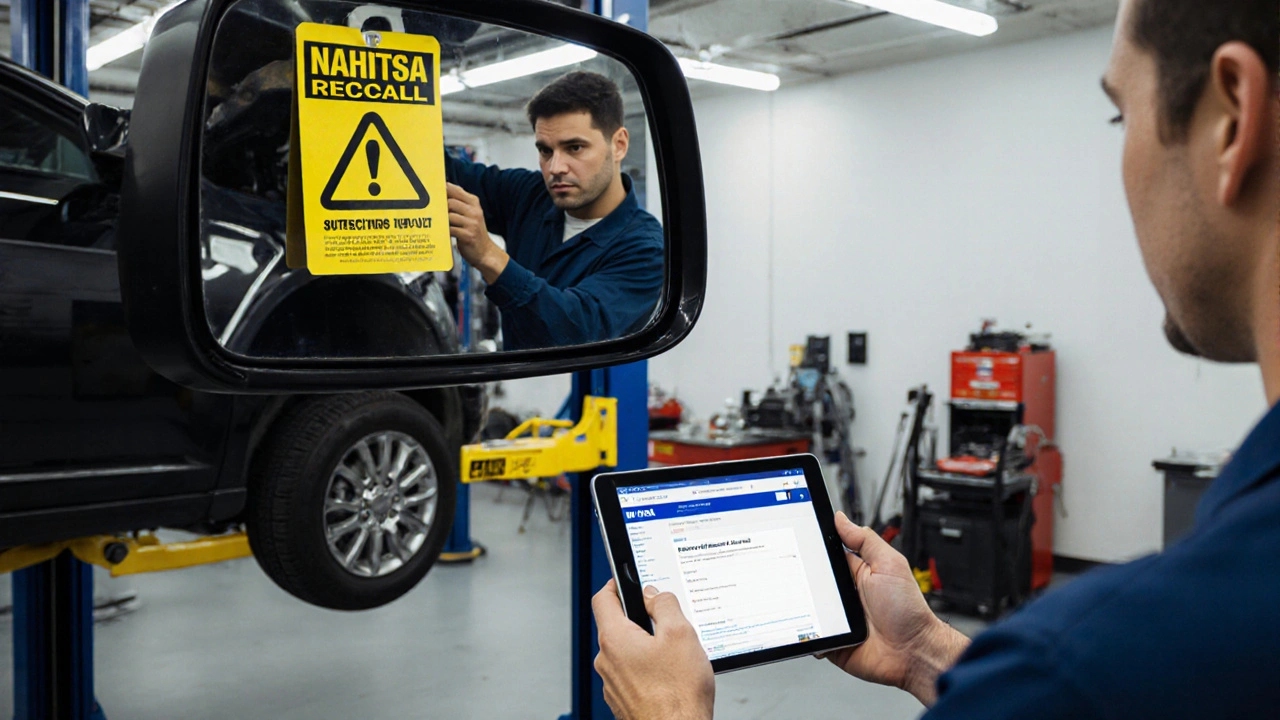
What Happens If You Ignore a Recall?
You might think, "My car’s been fine for five years. Why fix it now?" But safety recalls aren’t about mileage. They’re about risk. The defect might never show up-or it might kill you the next time you brake hard.
Insurance companies won’t cover damages caused by known, unrepaired recalls. If your airbag deploys improperly because you ignored a recall notice, your claim could be denied. And in some states, you can be fined for driving a vehicle with an open recall if it’s deemed a safety hazard.
Also, if you sell the car later, dealers and private buyers will check the VIN. An unresolved recall can drop the resale value by 10-20%, or make the car unsellable until fixed.
Common Myths About Recalls
There’s a lot of misinformation floating around. Here’s what’s real:
- Myth: Recalls mean the car is unsafe to drive. Reality: Some recalls are urgent. Others are precautionary. The letter will say if you should stop driving the car immediately.
- Myth: Only new cars get recalled. Reality: Recalls have no expiration date. A 2012 Camry with a defective fuel pump still qualifies for a free fix in 2025.
- Myth: Aftermarket parts void recalls. Reality: Only if the aftermarket part caused the defect. If your recall is for a factory-installed part, your aftermarket wheels or stereo don’t matter.
- Myth: Dealers can charge for labor. Reality: No. The manufacturer pays for everything. If a dealer asks for money, report them to NHTSA.
What’s Changed in the Last Five Years
Recall rules have gotten stricter. In 2022, Congress passed the SAFER Act, which forced manufacturers to report defects within 24 hours of becoming aware of them. Before, they had up to five days. Now, hiding a defect is a federal crime.
Also, NHTSA now requires manufacturers to notify owners through multiple channels: letter, email, text, and even social media. If you’ve opted in to manufacturer communications, you’ll get alerts on your phone.
And for the first time, NHTSA can now require manufacturers to issue recalls for software bugs. In 2024, Tesla had to push a remote update to fix a parking brake software flaw that could cause the car to roll away. That wasn’t a hardware recall-it was a digital one. And it was legally required.
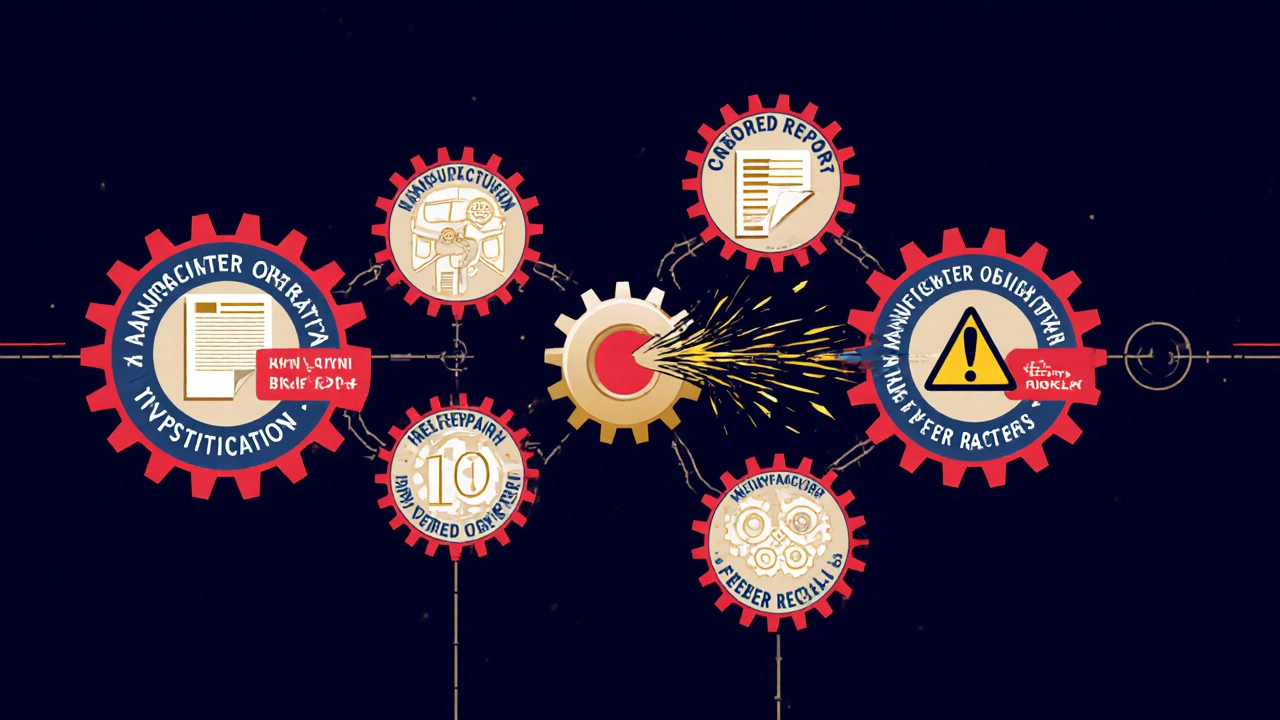
How to Report a Defect
If you notice something wrong with your car that you think might be a defect-unusual vibrations, strange smells, warning lights that won’t go off-don’t wait. Report it to NHTSA at nhtsa.gov/report-a-safety-problem.
You don’t need proof. Just your VIN, a description of the problem, and when it started. Even one report can start the chain. In 2023, a single complaint about a Ford F-150’s door latch led to a recall of 230,000 vehicles.
And if your repair takes longer than 30 days? You may be entitled to a rental car. Manufacturers must provide loaner vehicles if the repair is expected to take more than a week, and you’ve been without your car for over 30 days total.
Final Thought: Recalls Are a Right, Not a Favor
Car manufacturers don’t owe you a perfect vehicle. But they do owe you a safe one. The recall system exists because people died because no one was listening. The laws are there to make sure that never happens again.
Don’t ignore that letter. Don’t let a dealer talk you out of a free fix. And don’t assume your car is safe just because it’s running fine. Safety defects don’t always show up until it’s too late.
Do I have to pay for a recall repair?
No. By law, the manufacturer must cover all costs-including parts and labor-for any recall repair. If a dealership tries to charge you, report them to NHTSA immediately.
Can I get a refund instead of a repair?
Only if the manufacturer can’t fix the defect properly. For example, if the replacement part keeps failing or is no longer made, you can request a replacement vehicle or a full refund. This is rare, but it’s your legal right.
Do recalls expire?
No. Recalls never expire. Even if you bought a used car with 150,000 miles, you’re still eligible for the free repair. The obligation lasts as long as the manufacturer is in business.
What if I don’t know my VIN?
Your VIN is on your registration card, insurance documents, or stamped on the driver’s side door jamb. If you can’t find it, your dealership can look it up using your license plate or title number.
Can I get a rental car while my car is being repaired?
Yes-if the repair will take more than a week and you’ve been without your car for over 30 days total. The manufacturer must provide a loaner vehicle. Ask for it in writing if they don’t offer it.
Are software updates considered recalls?
Yes. Since 2024, NHTSA requires manufacturers to treat unsafe software flaws the same as mechanical defects. If a bug can cause unintended acceleration, brake failure, or steering issues, it triggers a recall-even if it’s fixed over the air.
What to Do Next
Check your VIN right now. It takes less than two minutes. Go to nhtsa.gov/recalls, enter your 17-digit number, and hit search. If there’s an open recall, call your nearest dealership and schedule the repair. Don’t wait for a letter. Don’t assume it’s not serious. And don’t let anyone tell you it’s your problem to pay for.
Your safety isn’t optional. The law is on your side. Use it.
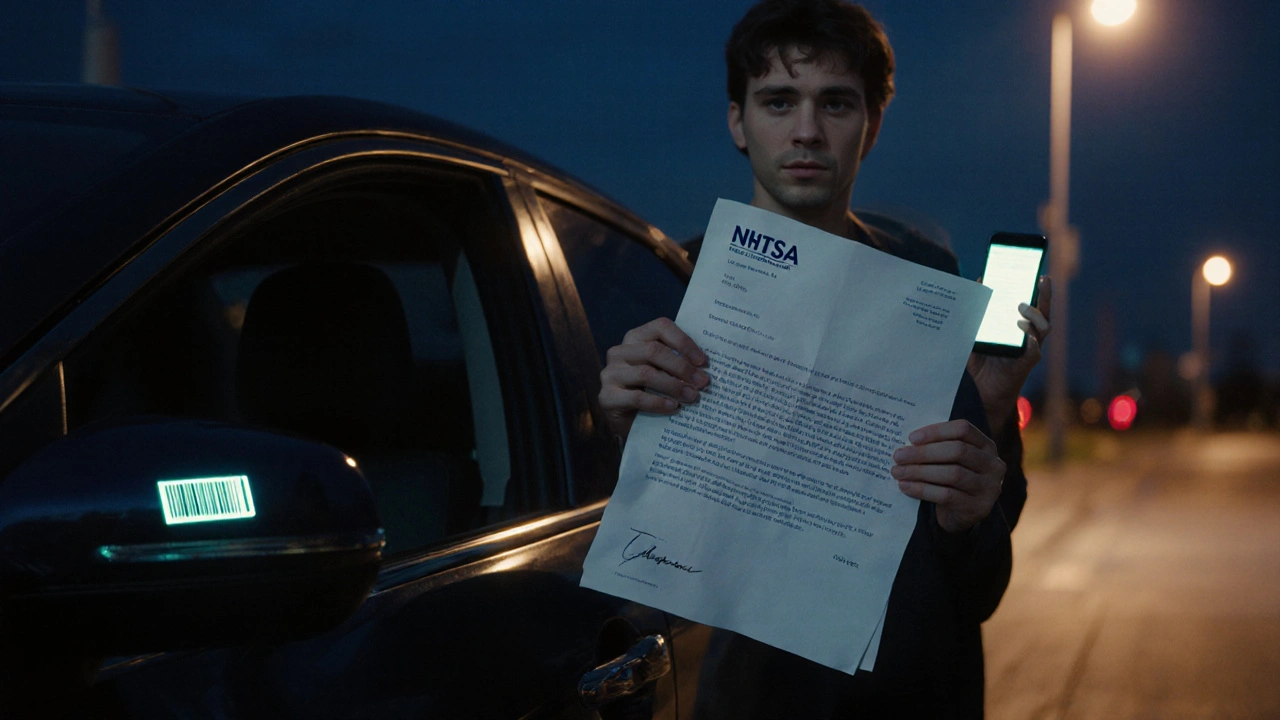
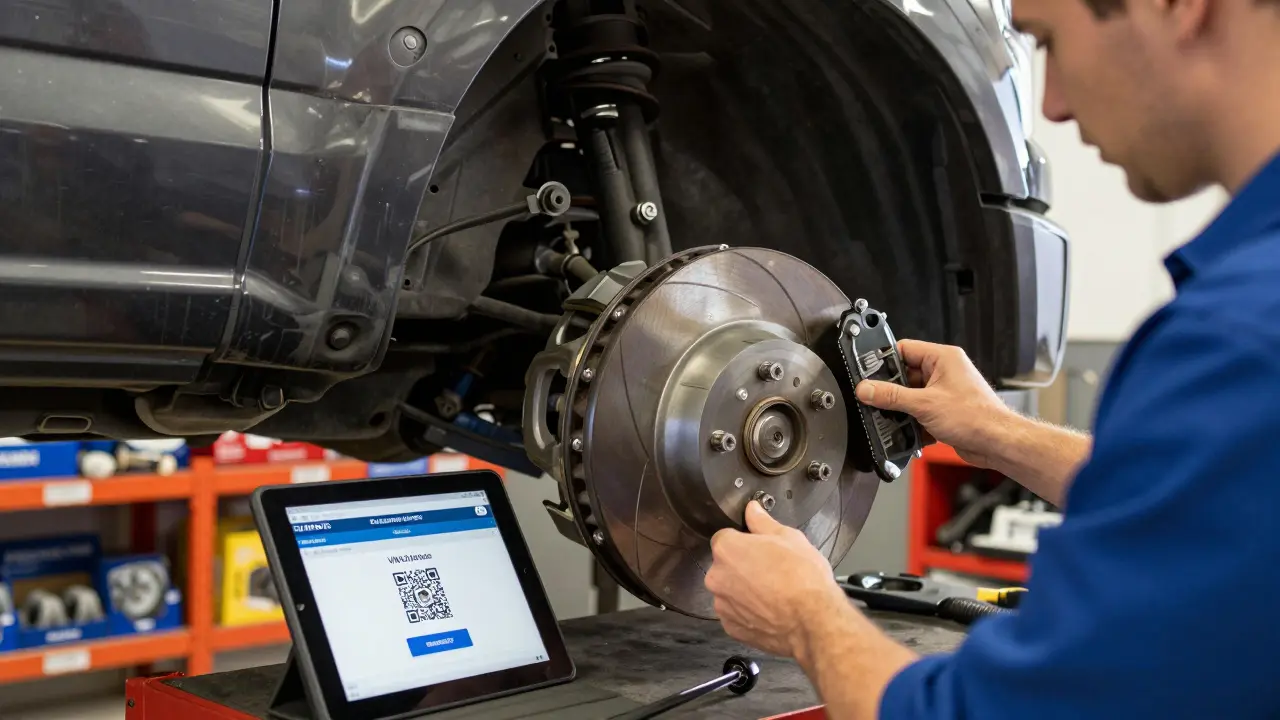
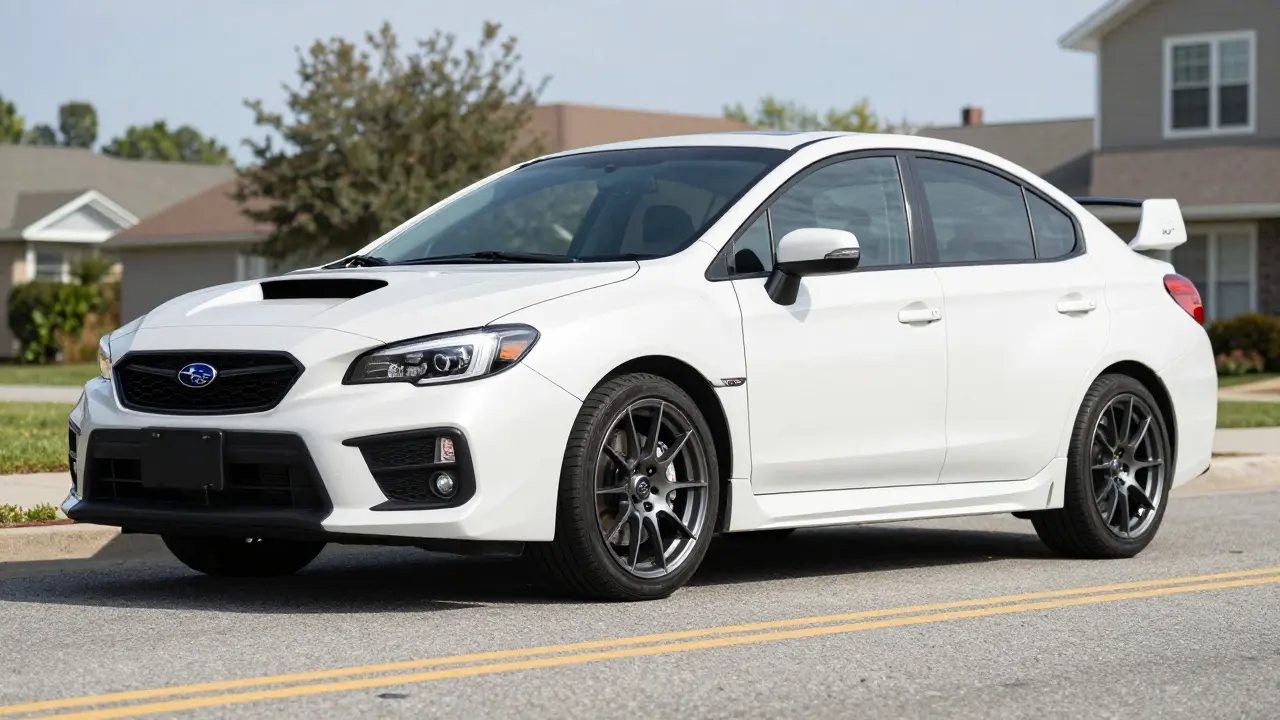
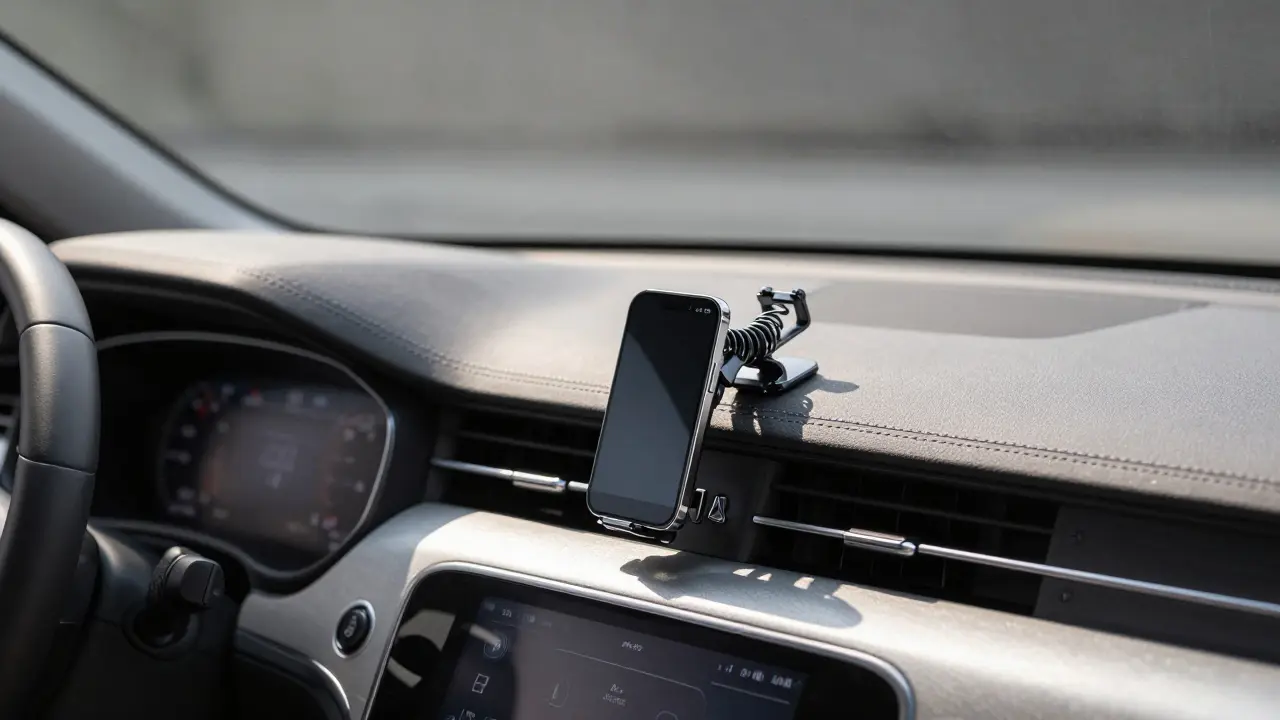
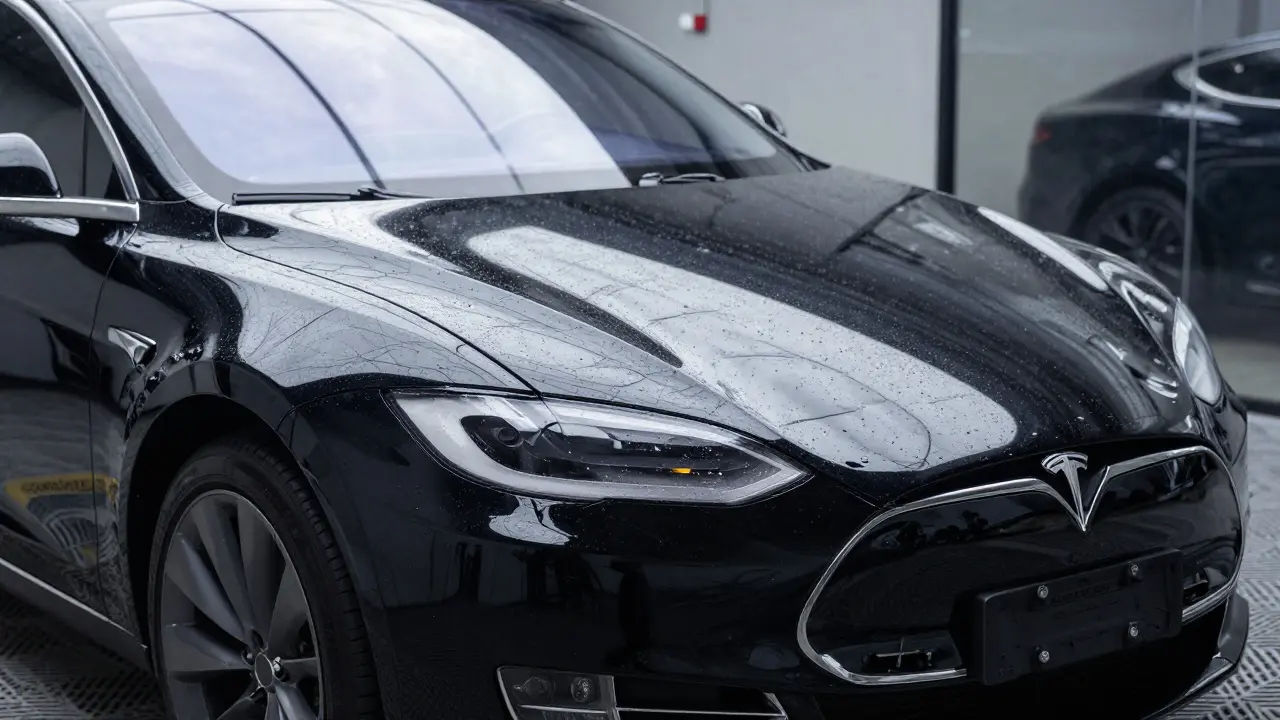
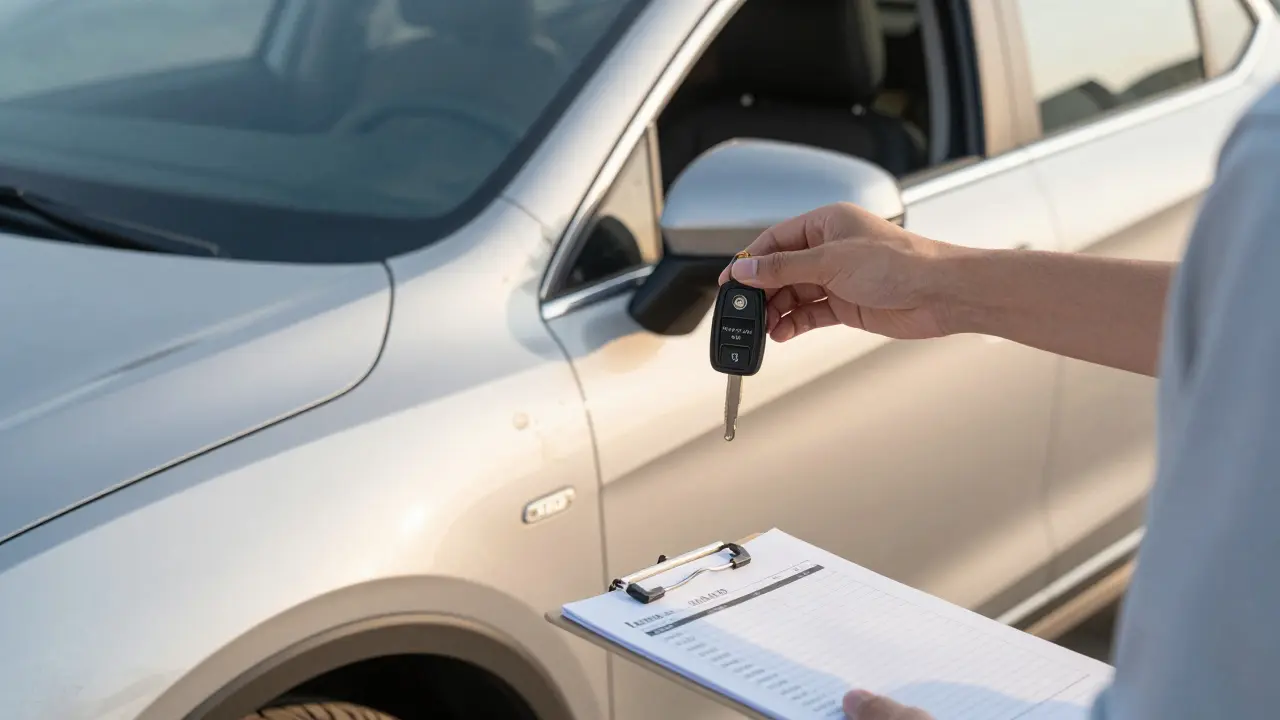
Anand Pandit
November 4, 2025 AT 19:15Just checked my VIN - turns out my 2018 Civic had an unresolved airbag recall from 2021. Called the dealer and they were shocked I even knew. Fixed it for free in 45 minutes. Seriously, people - don’t wait for a letter. Go to NHTSA right now. It takes two minutes and could save your life.
Sheetal Srivastava
November 6, 2025 AT 10:36It's fascinating how the regulatory architecture of automotive safety has evolved into a quasi-juridical ecosystem where OEMs are compelled into performative compliance - yet the epistemic authority of NHTSA remains under-resourced, relying on crowd-sourced telemetry from laypersons whose diagnostic literacy is statistically negligible. The systemic asymmetry between corporate liability calculus and consumer agency is, frankly, dystopian.
The fact that software-defined defects now trigger mandatory recalls signals a paradigm shift in vehicular ontogeny - we're no longer dealing with mechanical systems but embedded cyber-physical networks. Yet the legal framework remains anchored in 1960s hardware-centric paradigms. This is regulatory obsolescence dressed as progress.
Bhavishya Kumar
November 8, 2025 AT 09:14The sentence structure in your post is mostly correct but there are several instances where commas are missing before coordinating conjunctions in compound sentences. For example, after 'fuel lines that leak' you should have a comma before 'These aren't minor inconveniences.' Also, 'NHTSA doesn’t just rely on consumer reports-it also analyzes' - that hyphen should be an em dash or a comma. These details matter in formal discourse.
ujjwal fouzdar
November 9, 2025 AT 19:06You know what this really is? It's not about cars. It's about trust. We used to believe that the people who built our machines cared whether we lived or died. Now we know they don't - not really. They care about profit margins, PR damage, and quarterly reports. The recall system? It's not justice. It's damage control wrapped in legal jargon. The fact that we have to fight just to get a free repair… that’s the real tragedy. We built empires on steel and rubber, and now we beg for our lives to be taken seriously.
Every time I see a recall notice, I think of the people who didn’t make it. The ones whose names never made the headlines. The ones whose families got a letter that said ‘we’re sorry’ but never ‘we’ll fix it in time.’
And now they want us to trust software updates? Like a firmware patch is a prayer? Like a remote fix erases the blood on the pavement?
I’m not scared of a broken brake hose. I’m scared of a society that needs a law to make companies care.
Reshma Jose
November 10, 2025 AT 02:21OMG I just checked my VIN and my 2015 Hyundai had a recall I didn’t know about - the fuel pump thing that causes stalling. I’ve been driving it for years thinking it was just ‘old car stuff.’ Thank you for this. I’m booking my appointment right now. Seriously, everyone - go check. Don’t be like me and wait until someone posts about it.
rahul shrimali
November 10, 2025 AT 15:39Check your VIN now. Free fix. No excuses. Do it.
Eka Prabha
November 12, 2025 AT 13:56This is all orchestrated. The NHTSA? A puppet of the auto-industrial complex. They only investigate when the media catches wind. And the ‘free repairs’? They’re not free - you pay for them in higher insurance premiums, higher car prices, and higher taxes. The real scam? They want you to think you’re being protected when they’re just managing perception. Remember Takata? They knew for years. They just waited until the lawsuits became too expensive. This isn’t safety. It’s cost-benefit analysis with a moral veneer.
And don’t get me started on software recalls. That’s just a way to bypass physical recalls. They’ll patch a bug remotely, then quietly phase out the part. You think you’re safe? You’re just being conditioned to accept slow degradation.
Bharat Patel
November 13, 2025 AT 08:36There’s something deeply human about this whole system. We build machines to serve us - to carry us, protect us, give us freedom. But we forget that behind every bolt, every wire, every line of code - there’s a person who might’ve cut corners, or ignored a warning, or been pressured to ship it anyway. The recall isn’t just about fixing a car. It’s about admitting we’re not perfect. It’s about saying, ‘We messed up, and we’re sorry.’ And that’s rare. In a world that rewards speed over soul, a recall is an act of humility. Maybe that’s the real lesson here.
Bhagyashri Zokarkar
November 13, 2025 AT 21:06i just checked my car and there was a recall but i didnt even know what a vin was until like 5 mins ago lol. i thought it was just some number on my registration. turns out my 2013 ford has a brake issue that could kill me and i just drove past it like its no big deal. why does this feel like a horror movie? why do we have to be detectives just to stay alive? i feel so stupid. why cant they just text us? i hate this system. i hate that i have to fight for my safety. i hate that i didnt know. i hate that i almost died without even knowing it was possible.
Rakesh Dorwal
November 15, 2025 AT 04:43Let me tell you something - this whole recall system is a Western scam. In India, we fix our cars with duct tape and faith. Why should we bow to American bureaucracy? Who gave them the right to dictate how we maintain our vehicles? The NHTSA doesn’t even understand our roads. Our cars take punishment. Our mechanics are geniuses. Let them fix it themselves - why should we pay for their corporate mistakes? This is cultural imperialism disguised as safety.
And don’t get me started on software updates. You think Tesla is saving lives? They’re just collecting data. Every time they push a patch, they’re watching how you drive. This isn’t safety. It’s surveillance with a free repair.
Vishal Gaur
November 16, 2025 AT 15:33so i checked my vin and yeah there was a recall for my 2017 toyota but the dealer said they only have parts for 2020 and up so i gotta wait until next month. i asked if they could loan me a car and they said no because my repair is only gonna take 2 days. but i’ve been waiting for 3 weeks already. is that even legal? i feel like they’re just dragging it out. also the letter i got was super confusing like it said ‘potential risk’ but didn’t say if i should stop driving. why is everything so complicated? i just want to not die.
Nikhil Gavhane
November 16, 2025 AT 20:59I just wanted to say thank you for writing this. I’ve been nervous about recalls for years - always thought they were just marketing ploys or ways for dealers to charge me. Reading this made me realize how much I didn’t know. I’m going to check my VIN tonight. And I’m going to tell my dad - he’s 72 and still drives his 2008 Camry every day. He’s gonna need this info. You’ve done a real service here.
Rajat Patil
November 17, 2025 AT 17:03This is a very clear and thoughtful explanation. I appreciate the way you have laid out the obligations of manufacturers. It is important that we understand our rights. Many people do not know that recalls do not expire, or that they are entitled to a loaner vehicle under certain conditions. Thank you for taking the time to inform others. This knowledge can prevent harm.